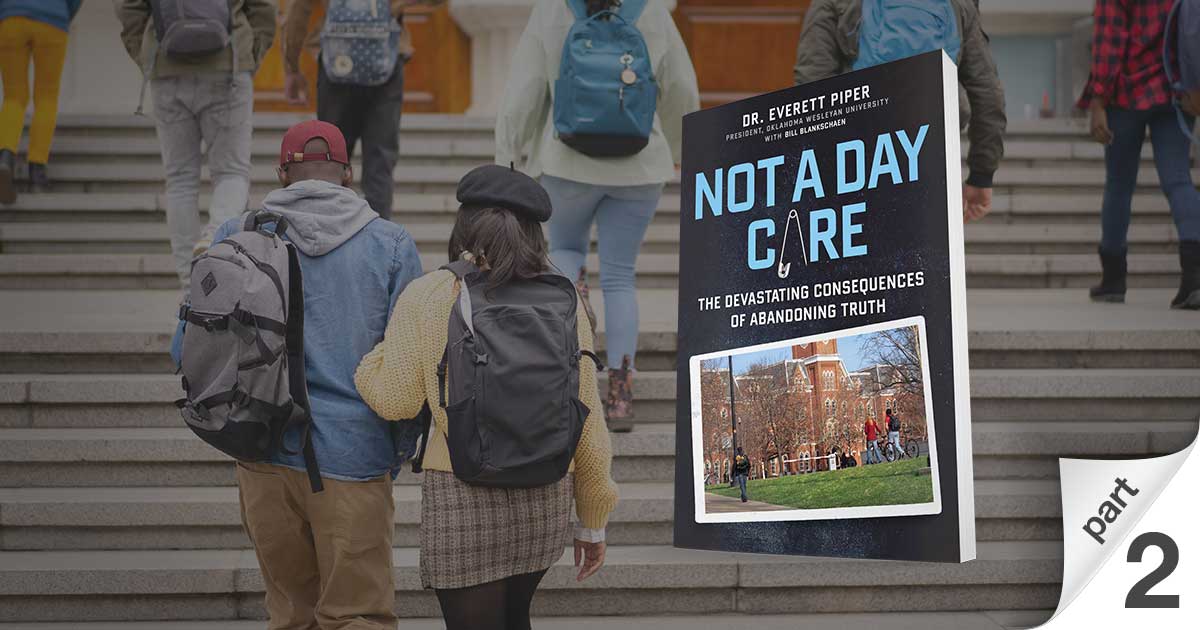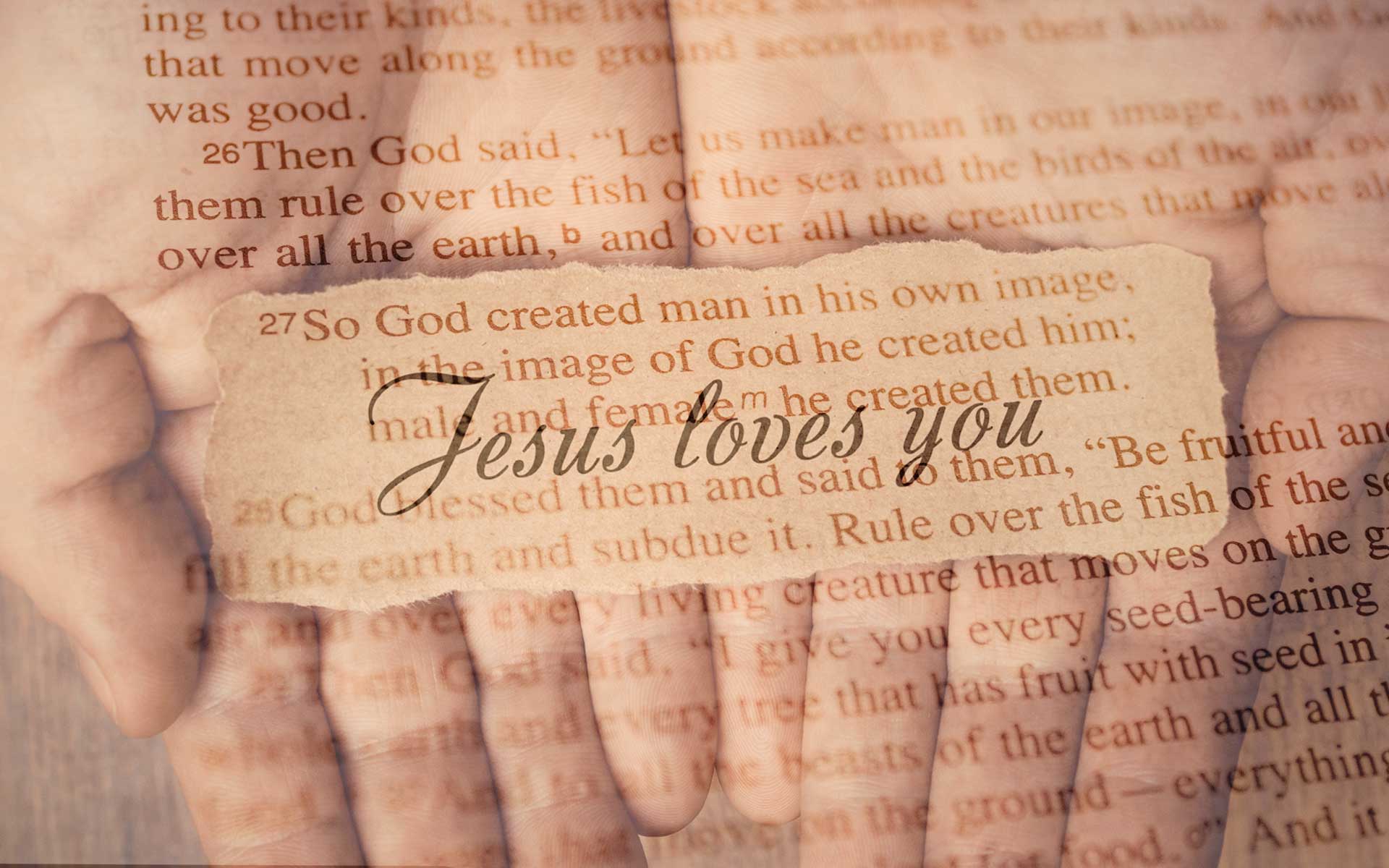Why do bad things happen?
It's a question that we all ask at least once in our lives. Sadly, the question torments some people so dreadfully that they come to the hopeless conclusion that there is no God.
How do we reconcile the truth that life can be hard—often cruel—with the truth that there is an all-powerful God who is good?
Some of the bad things that “happen” to us are the direct and natural results of our own sins. In other words, many of life’s hardships are entirely avoidable. But we all sin. While God always forgives anyone who genuinely seeks forgiveness, he usually does not remove the earthly consequences of our sins. And those natural consequences can cause untold suffering.
Still, it is usually easier to accept the suffering that comes as a result of our own shortcomings than it is to accept the pain that comes to us because of someone else’s sin. When whole families fall apart because one person was unfaithful; when millions are overcome with grief and fear as terrorists attack; when plague, or drought, or a natural disaster wipes out thousands; when a child suffers terrible abuse, it’s hard imagine that there is a God who cares.
Most times, the "why" is never answered for us. We know the world is a fallen place. Neither man nor nature enjoys the perfection that God intended. When sin entered the world long ago so did chaos, injustice and suffering. Thousands of books have been written about these subjects over the years. Ecclesiastes, for example, is filled with ponderings on the questions of injustice. And while we may never know the answer to our own dilemmas of sorrow or suffering, we do know that God provides a way for us to move through the pain that often seems unbearable, to a place of spiritual peace and rest.
The Hope: Finding God in the Midst of the Bad
How to best deal with the bad and ugly things that happen in our lives? Here are a few ways to make it through:
1. Answer God's call on your life now.
Once you decide to follow Christ and begin growing to love him with all of your heart, soul, mind and strength, he promises to take everything that happens to you and work it together for your good. Romans 8:28 says:
"For we know that all things work together for good for those that love the Lord and are called according to his purpose."
All things work together for our good. Not some things, not most things, but all things. God doesn't waste one single thing from our life experience. He weaves every moment together like the colored threads of an intricate tapestry. The yellows of joy; the blues of sorrow; the black of sin. He is at work through it all, using even our biggest disappointments to create something good and beautiful for us.
The worst injustice the world has ever seen was when Jesus, the only sinless man, was tortured and crucified. In the moment of his death, it appeared that evil had won. But God transformed that crushing “defeat” into the ultimate victory—he raised Jesus back to life, and because he defeated death, he now freely offers eternal life to all mankind.
If God can use Satan’s best plan—convincing men to murder the Son of God—to save all men who turn to him, imagine what he can do with the hardships you face.
2. "In all your ways acknowledge him, and He will direct your path."
Sometimes the greatest stress comes from trying to figure out how to get out of or beyond our circumstances. God promises to give us guidance and direction if we acknowledge with our words and actions that he is all-powerful, all knowing, and just. God's justice is perfect and he reveals it in his timing. In fact, the entire Bible is the story of his grace and justice—how he came to seek the lost, comfort the hurting, and exercise his perfect justice. When our minds and hearts begin to acknowledge that kind of love and power, we become free from trying to be God through our feeble efforts to answer life's questions according to our own terms.
It is in our humble state that God chooses to speak to us and give us direction. He does that through his Word and through our prayers.
A beautiful song by Brooke Fraser called "Flags" says it well:
You who mourn will be comforted
You who hunger will hunger no more
All the last shall be first
Of this I am sure
You who weep now will laugh again
All you lonely, be lonely no more
Yes, the last will be first
Of this I am sure
I don’t know why the innocents fall
While the monsters stand
I don’t know why the little ones thirst
But I know the last shall be first
3) Learn to forgive.
Forgiving is hard. Especially when the person who hurt you isn’t looking for forgiveness and doesn’t deserve it. But as long as you harbor bitterness against someone, you are allowing his or her actions to continue to damage the quality of your life as you move forward. It’s impossible to heal fully until you have forgiven fully.
Colossians 3:13 says, “Bear with each other and forgive one another if any of you has a grievance against someone. Forgive as the Lord forgave you.”
The last part of that verse is key. When you realize the depth of your own sin—and how much forgiveness God has so freely given to you—it becomes easier to forgive others, and it allows you to find healing.
4) Be prayerful and thankful.
The message of Phillipians 4:6-7 is, “Don’t worry about anything; instead, pray about everything. Tell God what you need, and thank him for all he has done. Then you will experience God’s peace, which exceeds anything we can understand. His peace will guard your hearts and minds as you live in Christ Jesus.”
Notice it doesn't say that your troubles will magically vanish. No, what God promises to do is to give you peace in the midst of your trials. Your pain—past or present—will never have the power to control you if your hope is in Jesus Christ.
He can handle all of your questions. He can identify with all of your pain. And he can turn your weeping into dancing.












